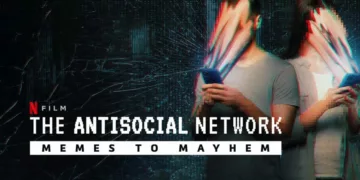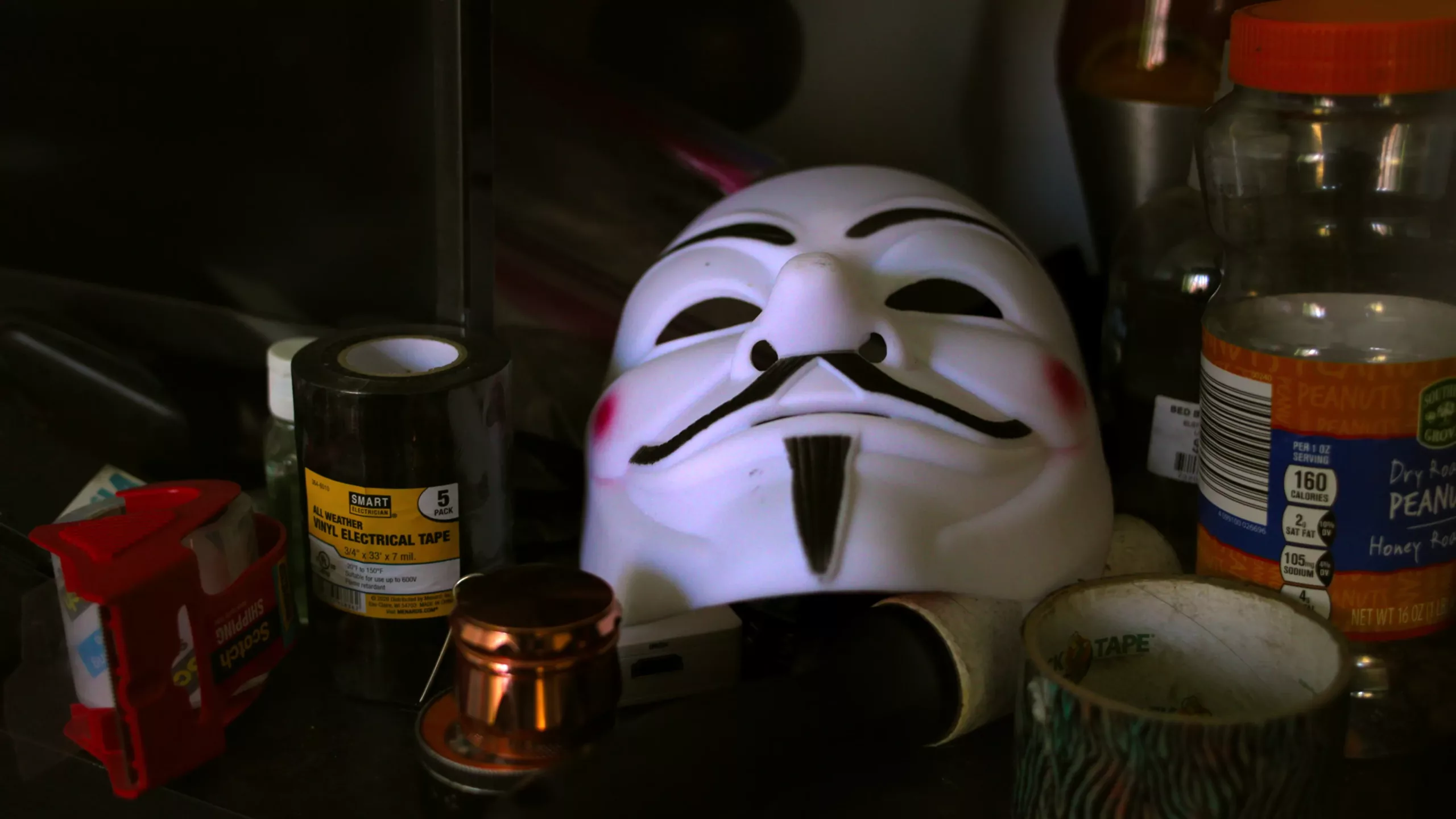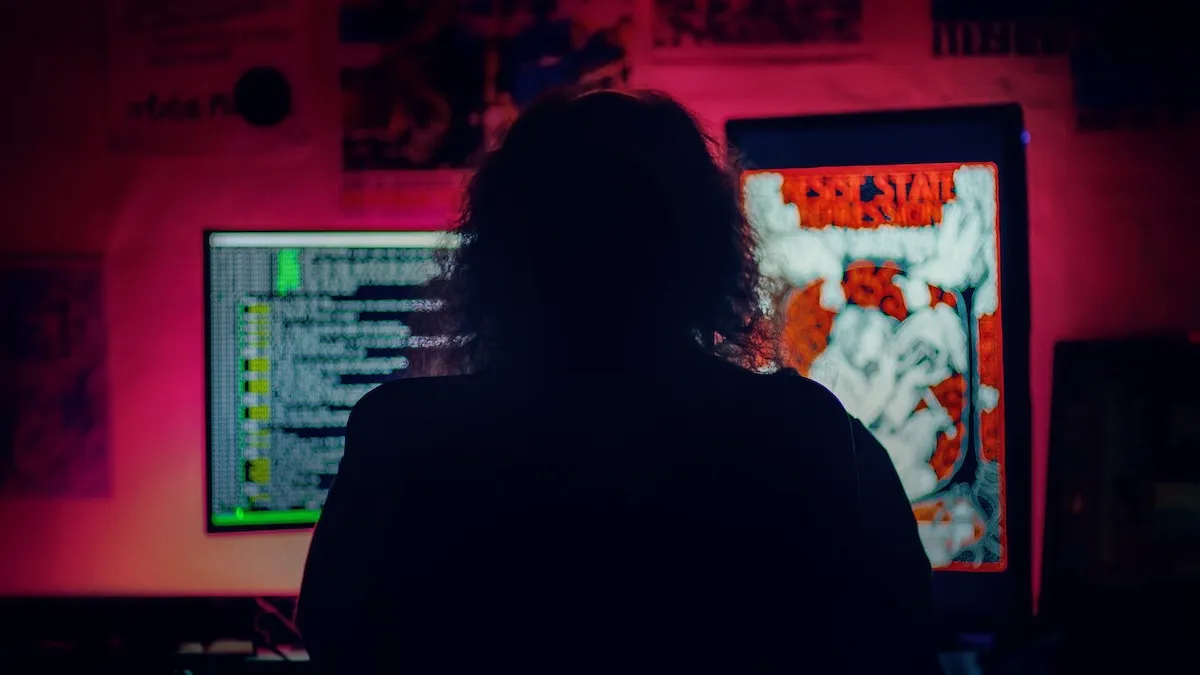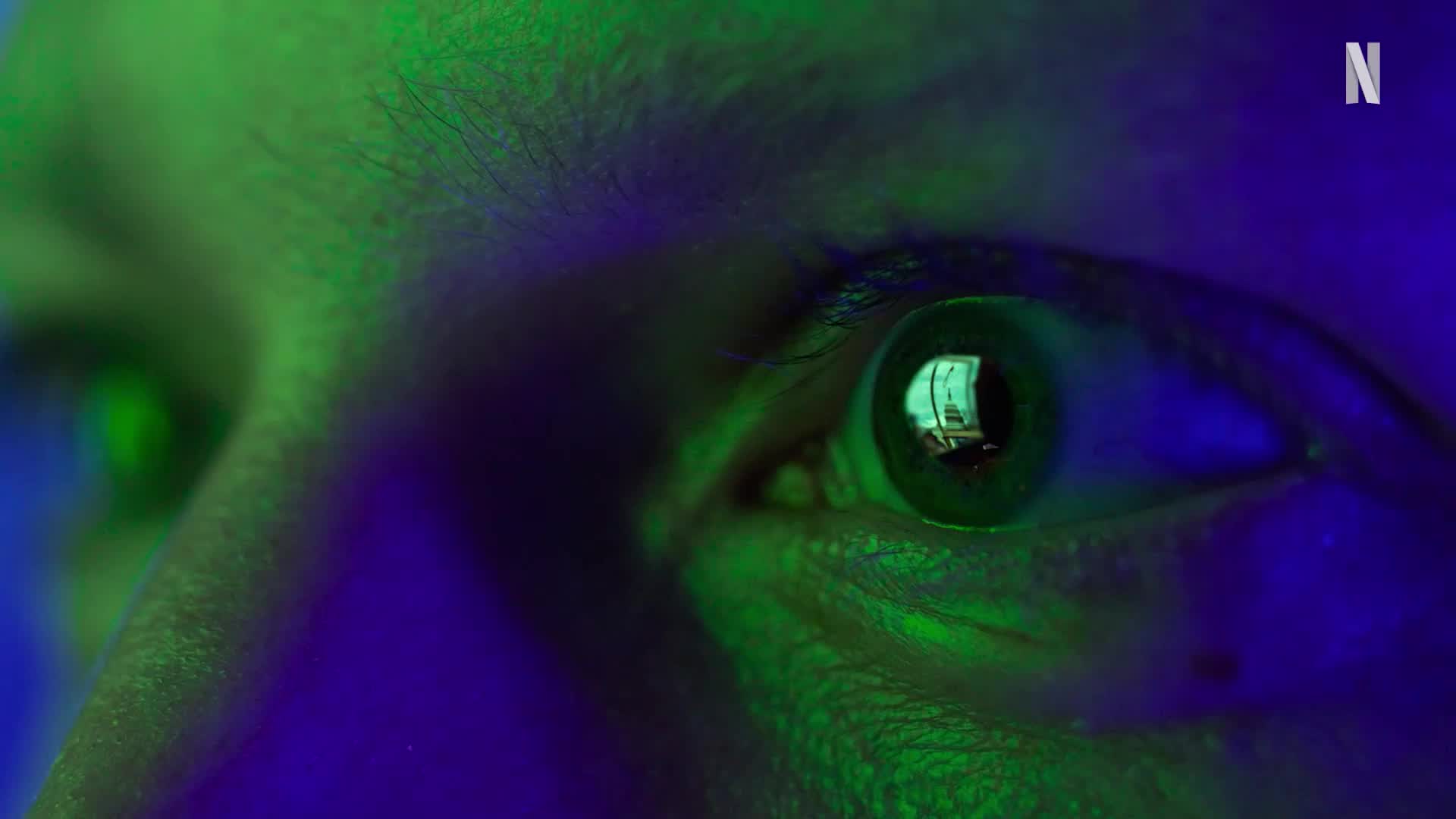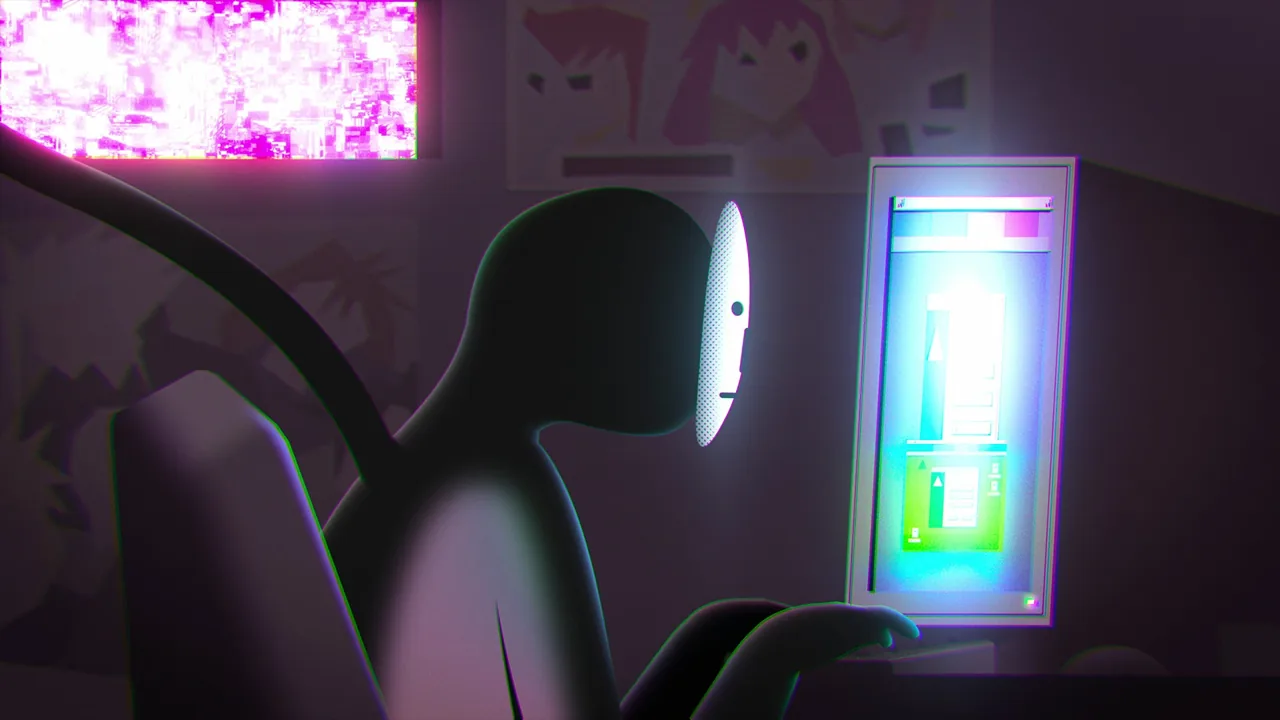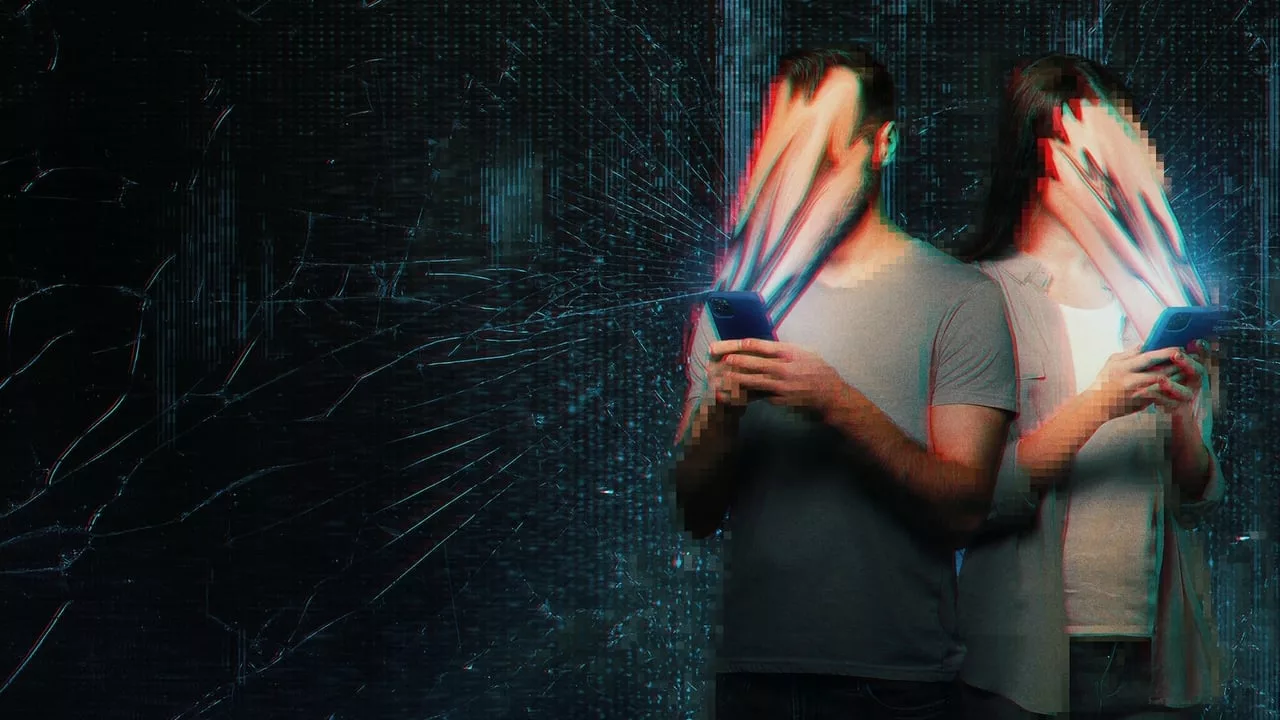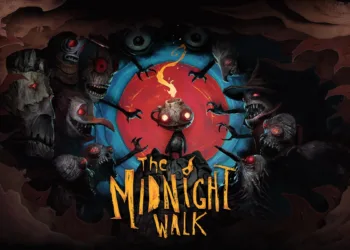In our perpetually-connected digital age, truth and conspiracy have become indistinguishable bedfellows locked in a perverse dance of deception. With “The Antisocial Network: Memes to Mayhem,” directors Giorgio Angelini and Arthur Jones take us down the rabbit hole to glimpse how an ostensibly harmless online community mutated into a contemporary Pandora’s Box of misinformation and societal toxicity.
This kinetic documentary chronicles the rise of 4chan, the infamous image board that pioneered meme culture and anonymous shitposting, before its anarchic id metastasized into a transmission vector for propaganda, hatred, and the QAnon delusion. What began as adolescent transgressions exploded into a postmodern nightmare where reality has become a choose-your-own-adventure farce. Brace yourselves as we venture into the abyss to confront the internet’s soul-corroding legacy.
Genesis of a Viral Madness
In its nascency, 4chan emerged in 2003 as a harmless online haven for anime enthusiasts to share fan art and revel in the subversive thrill of anonymity. Founded by the mischievous young Christopher “moot” Poole, it cultivated an aura of grinning adolescent rebellion, where in-jokes and provocations could be traded without consequence.
This seminal image board became a veritable beta test for meme culture, pioneering the spread of viral content, internet vernacular like emojis, and novel modes of digital self-expression. What began as irreverent satire soon escalated as 4chan’s users coalesced into the hacktivist collective Anonymous. Their “raids” pulling elaborate pranks on targets like the Church of Scientology represented a new frontier of online activism.
However, 4chan’s flirtations with sociopolitical impact took an insidious turn. Shocking stunts like propagating the Pizzagate conspiracy demonstrated the destructive potential of institutional distrust weaponized as misinformation. The documentary charts how alienated online subcultures like GamerGate nurtured an environment of vitriolic nihilism ripe for exploitation upon Donald Trump’s political ascent.
Culminating in the rise of QAnon’s deranged yet devastatingly pervasive conspiracy theories, “The Antisocial Network” reveals 4chan’s devolution from adolescent goof to Pandora’s Box of social Media-stoked delusion and hatred seeping into our fragile national psyche.
Meme Culture’s Multimedia Mavens
Befitting their descent into the mixed-media madness unleashed by 4chan’s viral tsunami, directors Giorgio Angelini and Arthur Jones craft a documentary that mirrors its subject’s frenetic, postmodern pastiche aesthetic.
Their kaleidoscopic editing rhythms juxtapose archival ephemera – lurid message board rants, crudely Photoshopped memes, animated GIFs – with stylishly shot interviews to convey the internet’s paradoxical ability to foster both community and depravity.
The documentary’s visual design brilliantly synthesizes the garish, neon-soaked ambience of 4chan with the slick production values of prestige non-fiction filmmaking. Animated sequences employ an evocative illustration style, rendering anonymous users as haunting, elongated figures bound to their screens by ethereal chains of digital dependence.
Meanwhile, the diverse array of interview subjects are presented against dimly lit backdrops lined with twinkling computer monitors, their existences defined by the glow of technology. It cultivates an authentically paradoxical tone – one that basks in the intoxicating potential of unfettered self-expression while recoiling at its unforeseen consequences.
Avatars of the Apocalypse
“The Antisocial Network” assembles a mesmerizing mosaic of subjects culled from 4chan’s infancy and its metamorphosis into a catalyst of social toxicity. We hear the mea culpas of apprehensive early adopters like “Fuxnet” and “Kirtaner,” former pranksters who speak wistfully of the MessageBoard’s initially harmless cultivation of transgressive humor and communitn.
Their regretful retrospection is balanced by the shameless bravado of contrarians like Fredrick Brennan, founder of the even more unrestrained 8chan offshoot. As an unmoved Brennan defiantly reminisces about enabling hate speech under the guise of free expression, his testimony crystallizes how the “shared aristocratic radicalism” of alienated young men metastasized into validation for racist ideologies.
Perhaps the documentary’s most haunting perspective comes from former QAnon believer Isaac H.P., whose unsettling transfixed gaze betrays a man still intoxicated by the alluring siren song of conspiracy. Having served as an influential YouTube propagator of Q’s deranged prophecies, his matter-of-fact introspection on how easily he was indoctrinated by a decentralized Cult of mass delusion personifies our cultural vulnerability to institutionalized distrust.
The documentarians’ keen editorial eye allows these disparate testimonies to coalesce into an alarming group portrait of how idealism, contrarianism, and a desperate need for belonging all catalyzed the 4chan hive mind’s descent from rule-breaking into radicalization. With empathy and bemusement, “The Antisocial Network” presents these Avatars of the Apocalypse to hauntingly humanize the internet forces jeopardizing society’s commitment to empirical reality.
Untangling the Tangled Web We’ve Woven
At its core, “The Antisocial Network” serves as a profound meditation on the existential paradox of the internet age. What began as a utopian frontier promising unprecedented connectivity and democratization of information has perverted into a narcotic miasma of alienation, disinformation, and radicalization.
The genesis of 4chan speaks to the intoxicating allure of crafting an anonymous digital persona liberated from socially-imposed identities. Unfettered from accountability, these avatars engaged in adolescent roleplay that popularized transgressive “shitposting” as the internet’s native tongue of irreverent subversion. Anonymity became profanity, allowing users to commercialize depravity under the mendacious guise of innocuous “lulz.”
As these online rabbit holes splinter into increasingly extremist subcultures, the documentary scrutinizes how this cavalier desensitization to hatred metastasized into bonafide ideological indoctrination. Disinformation like the Pizzagate and QAnon conspiracy theories acquire a veneer of credibility through repetition and obfuscating rhetoric that blurs objective reality.
The shopworn cliché that “jokes are becoming indistinguishable from reality” acquires chilling resonance as “The Antisocial Network” dissects the hazards of our age’s endemic irony poisoning. What begins as harmless hierarchy-upending provocation among the disillusioned coalesces into a Permission Structure for sociopathic actors to commit atrocities under the pretext of rejecting dogma.
Ultimately, the documentary cements 4chan’s legacy as the first face of our cultural reckoning with technology’s unforeseen capability to be ideological accelerant. The message board’s devolution from harmless community into ID-radicalizing malefactor personifies the internet’s transformation from lawless frontier into a societal menace requiring governance. “The Antisocial Network” urges that without embracing institutional guardrails, our addiction to online self-obliteration may catalyze civilization’s own self-inflicted undoing.
When Delusion Becomes Dogma
More than just chronicle the devolution of 4chan into a catalyzing force for societal chaos, “The Antisocial Network” boldly confronts the existential crisis plaguing our cultural moment. We live in an era where objective truth has become increasingly porous, as the mass proliferation of online misinformation and conspiracy theories has eroded the very notion of empirical reality.
By tracing how an insular community’s adolescent capering metastasized into a decentralized engine of delusion like QAnon, the documentary posits the internet as an ideological acclerator. Fringe conspiracies that would have once been confined to esoteric fringes now achieve mainstream mobilization through the infinite echo chambers and hostility algorithms of our digital discourse.
The film’s haunting portrayal of QAnon’s rise, from deranged 4chan shitpost to Pizzagate precursor to full-fledged cult, underscores how quickly in-jokes can curdle into dogma. Suddenly, the notion of a Satanic pedophile cabal seems as plausible as anything in our Orwellian age of blatant gaslighting from institutions. When delusion becomes the default lens for comprehending a reality grown too complex, it profoundly ruptures our metaphysical certainty.
In this void of subjective truths, “The Antisocial Network” argues conspiratorial thinking emerges as a coping mechanism for alienation and societal disaffection. The anonymous avatars once roleplaying on 4chan sought order amidst civilizational decay by Self-radicalizing into arsonists intent on burning the edifice down. The abject yearning to disentangle the world’s great fiction has superseded any adherence to verifiable facts.
By deconstructing this existential delirium, the documentary urges the viewer to confront our culture’s reluctance to view conspiracy as anything more than merely impish entertainment. For when irony-poisoning suffocates sincere belief in empiricism, unmooring from reality may be society’s grim point of no return.
Peering into the Abyss
While “The Antisocial Network” deftly chronicles 4chan’s descent from online oasis into a vector for societal toxicity, the documentary is not without some areas for critique. At times, its frenetic multimedia collage aesthetic – while befitting the anarchic spirit of its subject – can veer into overstimulation, diminishing the profundity of the narrative’s darkest turns.
Likewise, by granting remorseless provocateurs like 8chan’s Frederick Brennan ample interview screen time, the filmmakers flirt with implicitly validating those who enabled hatred under the guise of free speech. Their harrowing testimonies convey mandatory context, but one wishes they were counterbalanced with more voices giving the righteous perspective.
However, such quibbles are largely overshadowed by “The Antisocial Network’s” deftness in untangling the knotted strands connecting 4chan’s infancy to QAnon’s ascendant mass delusion. Angelini and Jones have crafted a wake-up call about technology’s unforeseen side effects that deserves to be hardwired into the cultural lexicon.
For beneath its bravura visual storytelling lurks a grim reckoning – an urgent reminder that the internet’s utopian promise has curdled into a societal menace. The very anonymity that allowed desperately alienated youths an idealistic space for transgressive self-expression begat a slipstream of harm, hate, and harassment once that safe harbor calcified into hermetic echo chambers of radicalization.
By illuminating how 4chan’s blithe capering about hunting animated raccoons quickly escalated into ideological accelerant for sedition and democracy’s unraveling, Angelini and Jones have created a seminal case study.
As our civilization continues outputting more data than we can phosphorus, this documentary urges we must remain ever-vigilant about the existential dangers stemming from our addiction to fracturing objective truth. For when conspiracies supplant reality, the internet’s darker potentials risk rendering society itself an anthropic joke no longer capable of comprehending the punchline.
The Review
The Antisocial Network: Memes to Mayhem
With "The Antisocial Network: Memes to Mayhem," filmmakers Giorgio Angelini and Arthur Jones have crafted a dazzling, terrifying, and utterly vital expedition into the nihilistic underbelly fueling society's existential unraveling. By deconstructing 4chan's devolution from online refuge into a primary vector for disinformation's normalization, they create a visceral portrait of how the internet's infinite image/reaction feedback loop poisons sincerity into delusion. This kinetic documentary transcends the phenomenological to plumb the metaphysical roots of our age's institutional distrust, revealing the tragic irony that utopian connectivity enabled a societal autoimmune disorder. As it illuminates the malignant allure of anonymity turned radicalization, "The Antisocial Network" emerges as a seminal case study of technology's accountability to its creators' frailties. Though not without some indulgences in its dizzying style, the film's profound insights into alienation's attractions more than compensate. An excoriation of society's surrender to subjective truth as dogma, it's a wake-up call we'd be foolish to ignore.
PROS
- Gripping narrative tracing 4chan's evolution from niche online community to cultural force
- Kinetic editing and multimedia style capture the anarchic spirit of internet culture
- Diverse array of insightful interviews from key participants and observers
- Profound exploration of themes like alienation, anonymity, disinformation, and societal decay
- Serves as a vital wake-up call about technology's unforeseen consequences
CONS
- Frenetic visual approach can occasionally feel overstimulating
- Gives ample platform to unrepentant instigators without robust counter-perspectives
- Follows a somewhat predictable structure in its final act's dissection of recent events
- Analysis doesn't always achieve the depth and originality its ambitions suggest
